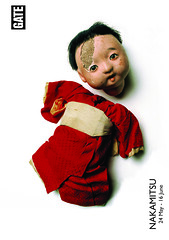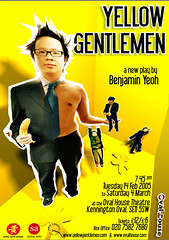Blackwatch
There are many reviews of this brilliant piece of theatre, however I found it moving enough that I thought I should add my own thoughts.
Lyn Gardner Guardian review here.
Interviews with Davey Anderson (Associate Director – Music) and Steven Hoggett (Associate Director – Movement) here
Telegraph review here.
FT review here.
I think you may need a subscription to get it so I’m going to quote the most critical (and perhaps controversial piece of Shuttlwworth’s review)
“John Tiffany’s direction draws out an excellent ensemble of performances, though I do wish he would restrain his taste for interpretative movement sequences. Ten years ago Frantic Assembly, whose Steven Hoggett directs these elements, were exciting and innovative; five years ago, they were an established brand; they have now passed through the phase of being virtually mandatory and are in danger of entering that of cliché. It is these sequences which cost the production a fifth star. ”
*
My thoughts aren’t quite organised on this, so they’re going to come in a series of notes.
First, some thing most reviews probably won’t mention. Cocktag.
(Bored or not so bored) soldiers get their tackle out and hit an unsuspecting victim in the face with their genitals and they are then tagged. This game can go on for months. It needs to be banned before the embeds (journolists turn up) and probably not a good idea in a Muslim country. The game is a little microcosm of the male cameraderie and in my view, “fun in the face of danger” attitude which I liked about the soldiers.
*
“Davey Anderson: What gets forgotten is that these troops come home eventually and they have a life beyond the Army. They carry with them their experiences of warfare and take them into whatever it is they do next – being a janitor in a school, for example, or working at the deli counter in Tesco.
We train these soldiers to become war machines, to become fighting machines, to kill other people and there’s something frustrating in that the act of fighting is so technologically advanced now, that it’s all done remotely, like playing a computer game.
So all this frustration and training these soldiers have bottled up often comes out when they come home – which is not part of the story when we talk about the Iraq war, or any other war. This personal aspect is something that’s forgotten about. It was really interesting to get that from [writer Gregory] Burke’s text. It was a reminder of what happens when the soldiers get back to Dunfermline or Dundee.”
*
The physicality. Ian Shuttleworth denied his reivew a 5th star becuase of the physical work. I disagree. I disagree because it hinted at some of the extraordinary physical trials that a soldier has to go through, while at the same time not pretending that these actors where actually as fit as soldiers. Their physical commitment seemed true and their ability to take physical command (as soldier do) seemed real. To lose the physicality would be to lose a flavour of the sweat and guts of a soldier’s life.
*
The play is based on verbatim words, but I think as a piece it correctly moved away from that and became the story of these soldiers.
Soldiers, who albeit had made a conscious decision to leave the Army and who weren’t going back, but who had been out to Iraq on two different tours, and some who had been out to Kosovo (“the fanny is good there”) before that.
And in becoming a story, sure we have the wider political points on warfare, but more convincingly we have glimpse of the pain and joy of serving in the army and the responsiblity of these men. We have real men.
Men who know war is about going somewhere because the govt says so and dying becuase that’s what happens to soldiers. It’s a job and they understand that.
*
I wasn’t aware of the history of the place, of the people until I saw this play.
“It takes 300 years to build an fighting force that is respecting around the world, but only one tour to destroy it” says the English officer (from an army background) in charge.
*
The moments between the middle class writer claiming to “understand” and the reluctant tellers of the story made me re-examine any assumptions I had about the type of person who is a solider. I don’t think I had the typical “middle class” assumptions [I've had a boss who was a tank commander] about the army, and I certainly won’t have them now.
*
Maybe more thoughts later, but if this production does tour or come to a place near you, I would book and go see it. Best piece of theatre this year, for me.
comments
One Response to “Blackwatch”


[...] Like most people who have seen it, I found it a brilliant piece of theatre. [...]